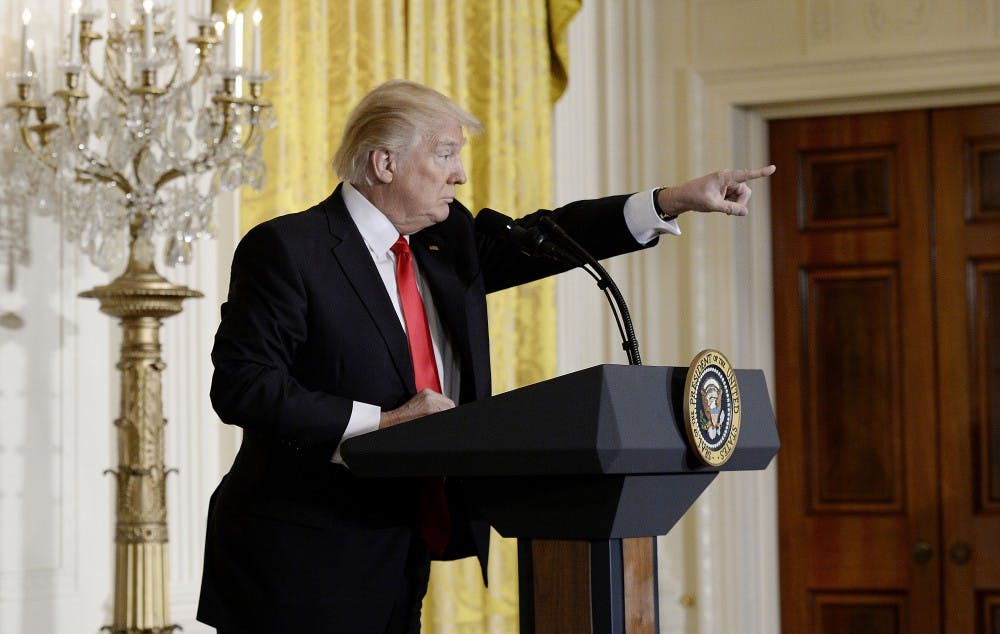ASU professors expressed a growing concern about President Donald Trump's administration’s relationship with the press following the White House's exclusion of select news organizations from a press briefing.
White House Press Secretary Sean Spicer held an off-camera press briefing, also known as a gaggle, Feb. 24 that excluded news organizations including the New York Times, CNN, Politico, and the Los Angeles Times.
Over the weekend, the White House drew ire within media ranks. The Associated Press and Time magazine both sat out of the gaggle in protest of the exclusion and more outlets said they would join in protest.
The exclusion came one day after two ASU professors, including Leonard Downie Jr., former executive editor and vice president of The Washington Post, told The State Press not worry about a president’s words as much as his actions.
Read More: ASU professors not overly concerned with Trump's anti-press rhetoric
In light of the White House's exclusion of particular media organizations, the same professors voiced concern over the administration’s treatment of the press.
“That concerns me if that is a sign that there is going to be real restrictions on access to media organizations that are thought by the White House to be too critical of the president,” Downie said. “I am concerned about access and any significant ways in which any of the media are blocked from access they ought to have.”
Downie said he understood why individual organizations may get worried over the restriction, but that the “arcane” nature of a gaggle makes exclusion from it less worrisome in the big picture.
Although daily briefings to the press pool are a necessary part of covering the White House, Downie said they are not the most important part.
“The most important part of covering the White House is to find out what’s really going on," Downie said. "And you’re very seldom going to find out what’s really going on from the gaggles or the briefings or the pools as anybody who watches the daily press briefing knows.”
Downie said up to this point, the press has had little trouble getting access to finding out what is actually going on in the White House. He said while the president may not be a fan of it, “working sources and finding out what’s really going on” is a sign of functioning journalism.
Donald Critchlow, a history professor and director of the ASU Center for Political Thought and Leadership, said that animosity between the president and press is a “destructive, symbiotic relationship.”
The nature of Trump’s name being mentioned on air raises viewership, which influences the bottom line of a TV network, is destructive and not healthy for democracy, Critchlow said in an email.
“This war makes for good headlines for right now, but other more serious news will emerge,” Critchlow said. “Nonetheless, the office of the presidency will need to restore the public’s confidence, introduce decorum to the office, and begin to unify the country more.”
Critchlow said the mainstream media had a responsibility to improve diversity and pursue objectivity more clearly if they hoped to restore their relationship with the public.
Kyle Dowd, a journalism freshman, said his reaction to the White House's exclusion was one of fear and anger.
“I think that there needs to be protest, not just from the media because that’s obviously not going to go well with the president, but just people in general who rely on the media for information, rely on media for accuracy,” Dowd said. “I think they need to take part in this and just really making sure we have the access to the president that we had in prior years.”
Reach the reporter at maatenci@asu.edu or follow @mitchellatencio on Twitter.
Like The State Press on Facebook and follow @statepress on Twitter.




